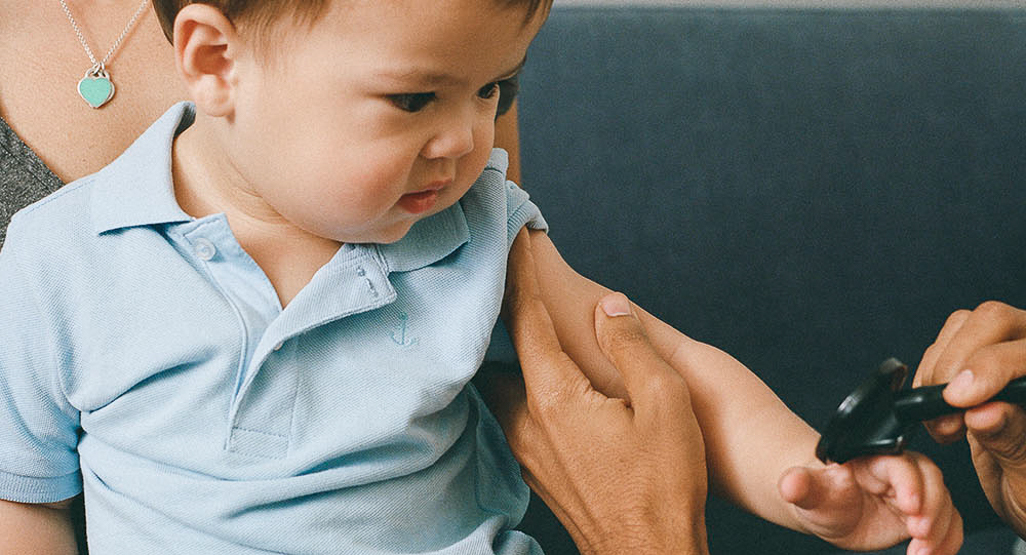
Hib is a potentially serious bacterial infection that can cause a wide range of diseases, mainly in babies and small children.
“The HiB vaccine is crucial for babies and small, because it almost eliminated one of the greatest culprits of serious bacterial infections in this age group,” says Chandani Dezure, MD, Pediatric Hospital in Palo Alto, California and a member of the Babycenter Medical Advisory Committee. “Hib once caused significant morbidity and mortality under 2 years, and thanks to this vaccine so much baby can live a healthier life.”
Advertising Page continues below
What are the benefits of the hib vaccine?
The hib vaccine protects your child from Haemophilus influenzae type b (no flu influence). This bacterial infection mainly affects babies and children under 5 years and weighs a strike year 2 years ago.
The disease can cause mild infections, such as ear infection, but can also cause many serious infections, such as:
- Meningitis (membrane infection that covers the brain) makes up 50% to 65% serious disease HiB.
- Pneumonia (lung infection) makes up 15% of serious Hib infections.
- Epiglottis (neck swelling) makes 17% of the serious cases of HiB.
- Cellulitis (skin infection) makes up 6% of the serious cases of HiB.
- Chanting arthritis (swelling of the common) makes up 8% serious Hib infections.
- Bone infection makes 2% serious HiB infections.
HiB’s infection can also cause the bloodstream infection.
Some of these infections can be fatal or cause long-term problems, such as brain damage, hearing or loss of limbs.
There are six different bacteria that cause hemophilus influenzae (a to f). The vaccine only protects from B, which is responsible for 95% of the disease.
Hib is contagious, spreading coughing or sneezing, and even those who are not sick can spread bacteria if they have it in the nose and throat. A child can get an infection of HiB more than once.
Advertising Page continues below
Before the Hib vaccine is approved for small children in the late 1980s, HiB was the leading cause of bacterial meningitis in US children under 5 years, According to centers for disease control and preventionOpens a new window (CDC). About 20,000 children in the United States contracted Hib diseases each year, and about 1,000 died. More than half of those who had a serious hib disease were younger than one year.
Thanks to the vaccine, the incidence fell almost 99%, and today it is less than 50 cases of HiB every year. Cases that continue to occur mainly in children who did not receive all shots or are too young that they were immunized.
The HiB vaccine is 93% to 100% efficient in the protection of children from HiB disease.
What is the recommended schedule?
The vaccine is recommended for all children under 5 years. In some cases (due to certain medical conditions), older children and adults also receive a vaccine.
Recommended number of dose
Three or 4 doses are recommended, depending on the brand. There are five vaccines licensed for hib vaccination in the United States.
Advertising Page continues below
Recommended century
- In 2 months
- In 4 months
- In 6 months (if necessary, depending on the brand vaccine given in 2 and 4 months)
- Between 12 and 15 months
Your child can get a vaccine with HiB at the same time as other vaccines.
It is especially important for children to get vaccines on schedule, because diseases that protect what children go on before the old 2. If your child does not get a vaccine to the OA doctor Reach the immunization scheduleOpens a new window.
Who shouldn’t get a hib vaccine?
Children under 6 weeks should not get a hib vaccine.
Talk to your child’s doctor if your child had a serious allergic reaction to the previous dose of vaccines or if they have serious allergies.
Advertising Page continues below
Are there any precautions I should take?
Children who are moderately that they should seriously be likely to wait until they recover before it gets a vaccine for HiB. In this way, if they have any side effects, they will be better to tolerate them.
If your child has a smaller disease, like a cold, they are probably okay to vaccinate, but they mention it to his doctor.
Here’s what else to know about delaying immunizations if your child is sick and risks from delaying vaccination until your child is older
What are the possible side effects?
The HiB vaccine usually does not cause any mild problems, but it is possible that the child has some redness, pain or swelling at the injection site. Fever and irritability happen and rarely. These symptoms would appear within the day of vaccination and the last two to three days.
Heavy allergic reactions are rare, but possible with any vaccine. If your child has an unwanted reaction to this or any other vaccine, talk to your child’s doctor and report it to Vaccine unfavorable reporting systemOpens a new window.
Advertising Page continues below
Key writing
- HiB is a serious bacterial infection that can cause many serious complications, including meningitis, pneumonia and epiglottis (neck swelling).
- The vaccine with HiB is especially important for babies and small children, because the disease tends to hit children before the age of 2.
- The immunization of the HiB starts in 2 months and is given in 3 or 4 dose, depending on the brand vaccine.
